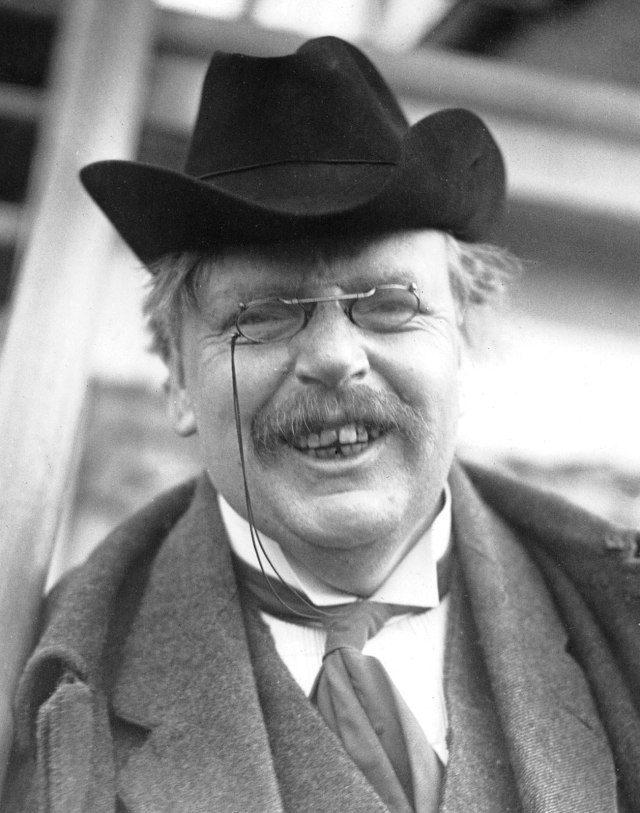Once, in English Composition class my freshman year of college, I had a big thick book sitting on my desk. The professor asked what I was reading, and I told her it was a collection of essays by G.K. Chesterton. She had never heard of him, so I explained that he was an early 20th century English journalist and novelist, gave my opinion that he was a charming if occasionally annoying author, and tried to describe his philosophy of looking at ordinary realities in new ways. I also mentioned that he was given to quixotic campaigns, such the fact that he was one of the few serious voices in England against Women’s Suffrage.
With that, my previously interested professor visibly shuddered and said “He must have been a horrible person.”
Her reaction surprised me, because she was generally a good teacher who encouraged debate. I could not see how she could judge a person’s character based which side he argued in a controversy that took place a century ago.
Nowadays it has become commonplace to judge people’s character by their political opinions: if you are in favor of X but against Y, you are a horrible person, no two ways about it. The fact that X and Y might switch sides tomorrow depending on political expediency is irrelevant. Both Our Lord and Savior Barack Obama and His Vicar Hillary Clinton were opposed to gay marriage in 2009 and 2012 respectively, but if you are against it in 2014, you are a bad person.
There are a few different reasons for this phenomena, none of them good. First, people are lazy; it is easier hold right opinions than to do good deeds. Second, people are stupid: it is hard to imagine that other people might have internally coherent arguments for their opinions, it is easier to call them evil. Third, politicians know people are lazy and stupid and will tell whatever lies necessary to win elections.
Hence the charming, frustrating, flamboyant, brilliant, self-contradicting, courageous G.K. Chesterton was “a horrible person”, the cartoon villain, the cowboy in the black hat, for being on the losing side of the debate.
What was Chesterton’s evil argument against the Woman’s Suffrage movement? It was more or less this: a man or woman by themselves is not a social unit. The man is, (at least he should be) a husband and a father; the woman is (or should be) a wife and mother. These two halves together form a higher unity, a family, the true social unit. The man votes not as an individual but as a representative of a family. The problem with Women’s Suffrage is that it encourages men and women to see themselves not in cooperation, but in competition, and it treats each as an individual without reference to his or her subordination to the higher good of the family.
We can criticize Chesterton’s argument thus: it argues from the ideal of marriage without taking into account less than ideal realities; it does not take into account the changing dynamic of family life thanks to the industrial revolution; but can we really call him ‘a horrible person’ because of it? At worst, he is clinging to a pre-industrial vision of family life that worked perfectly well at one time, and might even work alright for some people to this day, but that does not make sense for Western upper middle-class professional couples from the 20th century onward.
This does not make poor G.K.C. the bad guy.


I love Chesterton and don’t really give a fig for how “out-of-date” the modern intellectual may tend to view him. I also find the point about “social units” terribly insightful. Thanks for sharing.